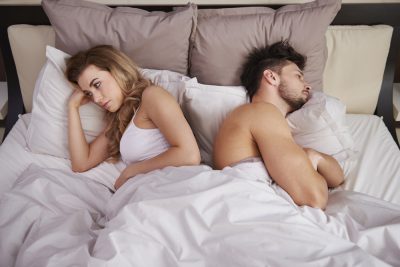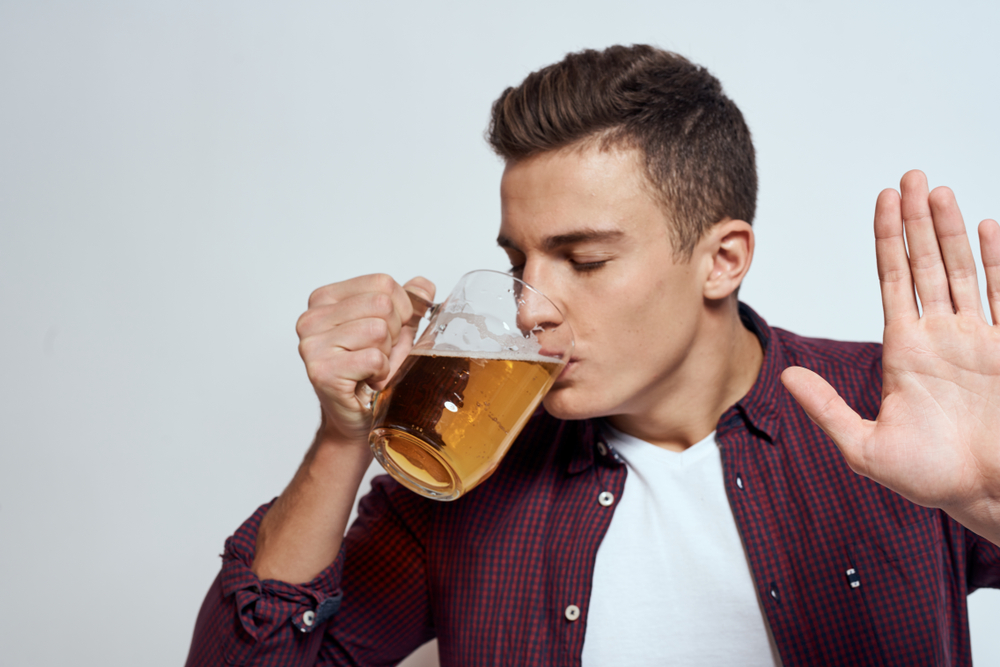The occasional beer or glass of wine isn’t a cause of concern – but we all know that chronic consumption of alcohol is bad for your health.
You’re probably aware of the negative effects of alcohol consumption – apart from getting terrible hangovers, long-term alcohol consumption can lead to serious consequences like liver disease, cardiovascular damage, increased risk for certain cancers, and serious mental health issues.
If those consequences aren’t reason enough for you to refrain from alcohol consumption, then this one probably will.
Did you know that regular heavy alcohol use may make you less masculine by reducing your testosterone levels? Let’s discuss this in greater detail by starting with what we know about testosterone.
What is testosterone?
Testosterone is generally known as the hormone that influences masculine physical, mental, and sexual traits such as muscle mass and strength, bone mass and density, the ratio of fat distribution across the body, the reproductive aspects of men such as sperm production and libido, and cognitive function, among many others.
We already know that too much of a good thing is bad, even generally bad things like alcohol. That said, regardless of a person’s sex, over-consumption of alcohol can seriously mess up the body’s capacity to create hormones and regulate their presence in the body – testosterone included.
A study performed by the Testosterone Centers of Texas found out that testosterone levels fluctuate depending on how much alcohol is consumed. That is, the more a person abuses alcohol, the more increasingly likely their chance is to experience unwanted changes to their testosterone, leading to hormonal imbalances and the well-known risks of diminished testosterone levels.
What are the consequences of diminished testosterone levels?
Diminished T levels may lead to the following symptoms – symptoms that are easily dismissed for being just a “normal” part of aging. But as you will see, some of these can be serious.
 Low sex drive
Low sex drive
Testosterone regulates a man’s sex drive. Low T will make you less interested in getting it on altogether – some men sometimes lose their desire entirely.
Erection problems
Nitric oxide is what promotes erections in men. But testosterone is a prerequisite for your body to be able to produce amounts of it. Overindulging in alcohol can lead to erectile problems that will interfere with your ability to achieve pleasurable, vigorous intercourse.
Diminished sperm production
Testosterone is integral to the production of ejaculate matter, including sperm. The prostate, seminal vesicles, and testicles require a steady supply of T to create larger amounts of ejaculate matter.
Diminished genital sensations
A common complaint by men who suffer from low testosterone is that of the lack of sensations in the genital region – that is, the sensations that would normally be intense when stimulating the genitals aren’t as enjoyable as they should be.
Exhaustion and low energy
Feeling exhausted and tired after a long, busy day is perfectly normal – but men with low T get more exhausted than they should be. The same is true for their energy levels, which leave men with low T lacking the drive and energy to perform, and instead be content lazing around the house.
Mood swings
An imbalance in your hormonal makeup will lead to mood swings, ranging from manic bursts of energy or being more depressed or irritable than usual – more than you are aware of.
Decreased muscle mass
It must be said that low T doesn’t turn men into weaklings overnight. But there is certainly a feeling of weakness and being not as strong as you should be. This can also lead to muscle shrinkage, which will impact your overall performance and rob you of the ability to lose weight efficiently.
Increased body fat percentage
Decreased muscle mass is bad enough – but there’s more. Low T can manifest itself in increased body fat percentage around the midsection, including the unsightly condition known as gynecomastia: the appearance of man boobs due to the hormonal imbalances.
Decreased bone mass
A decrease in bone mass and density will leave men with low T more prone to bone fractures.
Testicular shrinkage
Low testosterone may cause shrinkage to your testicles and make them feel less firm than usual.
How can men prevent alcohol-induced testosterone deficiency?
Now that we know the potentially destructive effect that constant alcohol consumption can do to your body, let’s discuss the steps by which men can avoid testosterone deficiencies linked to it.
Less-than-healthy T levels may cause symptoms that are extremely unpleasant as well as dangerous altogether, with long-term consequences for your overall health and performance.
That’s why, if you struggle with alcohol and its effects on your testosterone, the first step you should consider is to drastically curtail or totally cease alcohol consumption.
There are other methods by which you can support this goal, and these include:
- Medication
- Regular exercise – Resistance training, or weight lifting, increases T levels more than cardio does.
- Weight loss – Carrying extra weight around can lead to hormonal imbalances.
- Getting a full night’s sleep – The body produces the most testosterone during rest and recovery – so make sure to get your Z’s.
- Lower stress – Stress produces cortisol, which inhibits the production of testosterone.
- Proper diet and nutrition – While weight loss is a superb way to increase T levels, going on a crash diet can hamper its effectiveness. Don’t eat too little, don’t eat too much, and don’t starve yourself.
If you are concerned about your alcohol consumption and its effect on your testosterone, consult your doctor. A sensible plan of action is made possible by an accurate diagnosis of the problem.
How much alcohol does it take to reduce testosterone levels?
Overall, research shows that testosterone levels in American men are decreasing. In general, American men possess 25% lower testosterone than the American men of the 1980s. And it is thought that alcohol may be one of the biggest influences for this decline.
Studies show that consuming one drink a day for women and two drinks a day for men – which is the baseline for what is considered moderate consumption – causes a slight reduction in testosterone for men, with little to no effect in women.
Granted, moderate drinking shouldn’t be a cause for worry.
But heavy drinking (defined as having five or more alcoholic drinks within a two-hour timeframe), regardless of frequency, causes more dangerous consequences to health. This includes lower testosterone levels in men, and increased testosterone in women. This may also cause reproductive health issues for both sexes.
Factors that may influence the effect of alcohol on testosterone levels
There are plenty of factors that influence how alcohol consumption interferes with a person’s testosterone levels. This includes factors such as sex, age, preferred drink, and so on. Here are some factors that are thought to influence alcohol’s effect on testosterone.
Sex
 Ethanol is considered toxic to the male reproductive system. Large doses of alcohol are linked to reduced sperm count, fertility, and testosterone function. It may even cause cellular damage to the testes. It shouldn’t come as a surprise that men who suffer from excessive alcohol use to also experience infertility.
Ethanol is considered toxic to the male reproductive system. Large doses of alcohol are linked to reduced sperm count, fertility, and testosterone function. It may even cause cellular damage to the testes. It shouldn’t come as a surprise that men who suffer from excessive alcohol use to also experience infertility.
On the other hand, alcohol consumption in women leads to increased testosterone, making them lose feminine sexual characteristics, undergo mood swings, and boost the likelihood of infertility.
Age
Studies indicate that moderate alcohol use varies on the individual’s age. As men and women age, hormones naturally fluctuate, causing more substantial changes with even lesser amounts of alcohol consumed compared to when they were younger.
At the age of 40 to 60, moderate amounts of alcohol may have a huge impact on hormone production.
The type of alcohol being consumed
Alcoholic beverages like beer will often contain estrogen-increasing and testosterone-decreasing chemicals such as prolactin and phytoestrogen. These are found in the hop and barley content of beer. Wine and particular liquors like bourbon whiskey also contain phytoestrogen.
Side effects of hormonal imbalances due to alcohol consumption
When testosterone levels are thrown in disarray by alcohol consumption, it can increase the risk of prostate cancer in men and breast cancer in women. This may manifest as decreased energy and drive in men, and irregular menstrual cycles and hair growth in women.
That’s not to mention the effect of alcohol consumption on the liver, which is responsible for a vast array of bodily functions which includes testosterone production. And alcohol’s effect on the liver is well-documented.
Conclusion
Alcohol does strange things to your testosterone – none of them in a beneficial way. Granted, there is a study that illustrated how some men react to alcohol consumption with a temporary increase in testosterone levels – a hormonal surge that probably accounts for the drunken rage.
But then there are other studies that binge drinking actually reduces testosterone levels for a day or two after overindulging.
On the whole, however, heavy long-term alcohol consumption negatively impacts testosterone levels, particularly preventing them from enjoying normal testosterone levels, which in turn presents another set of consequences.








COMMENTS